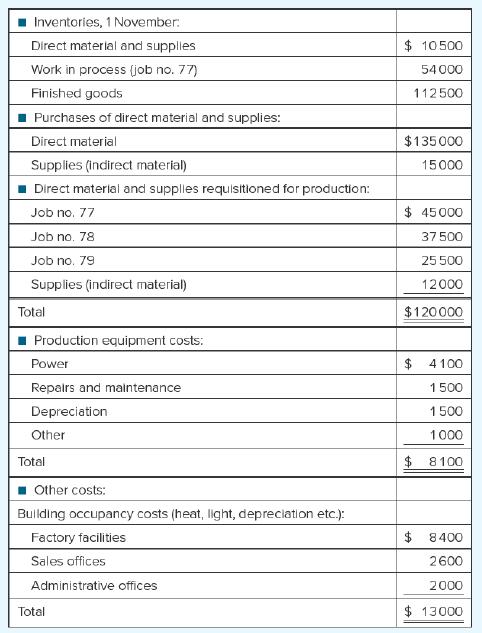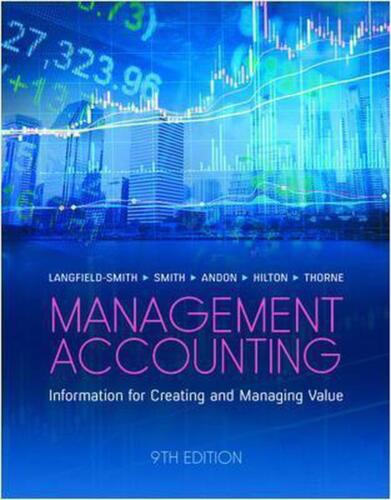P7.36 LO 7.8 Overhead application using predetermined overhead rate; practical capacity versus normal volume: manufacturer Jane Statton,
Question:
P7.36 LO 7.8 Overhead application using predetermined overhead rate; practical capacity versus normal volume: manufacturer Jane Statton, the accountant for Hobart Happy Critters Ltd (HHCL), is in the process of analysing the company's overhead costs for November. She has gathered the following data for the month: Labour: Direct labour hours: Job no. 77: small koalas Job no. 78: large kangaroos 2600 3000 2400 Job no. 79: small echidnas Labour costs: Direct labour wages $160000 Indirect labour wages (2 000 hours) 20000 Supervisory salaries 12000

The job costing system used by the firm uses direct labour hours as the overhead cost driver. In November of the previous year, Statton had prepared the following budget for direct labour and manufacturing overhead costs for the coming year. The plant is capable of operating at 135000 direct labour hours per year. However, Statton estimates that the normal usage is 120000 hours in an average year. Manufacturing overhead budget Direct labour hours Variable Fixed 100000 $600000 $216000 120000 720000 216000 140000 840000 216000 During November the following jobs were completed:
(a) job number 77: small koalas
(b) job number 78: large kangaroos.
Required 1. Construct an Excel spreadsheet to:
(a) Calculate the predetermined overhead rate for the current year, using as denominator volumes: (i) practical capacity (ii) normal volume.
(b) Calculate the total cost of job number 77, using both overhead rates calculated in part (a).
(c) Calculate the amount of manufacturing overhead applied to job number 78 during November, using both overhead rates. 2. What was the total amount of manufacturing overhead applied during November, using both overhead rates? 3. Use your spreadsheet to:
(a) Calculate the actual manufacturing overhead incurred during November.
(b) Calculate the overapplied or underapplied overhead for November, using both overhead rates. Explain the differences. 4. Which of these denominator volumes is likely to result in accurate estimates of product costs? Explain.
Step by Step Answer:

Management Accounting Information For Creating And Managing Value
ISBN: 9781743767603
9th Edition
Authors: Kim Langfield Smith, David Smith, Paul Andon, Ronald W. Hilton





